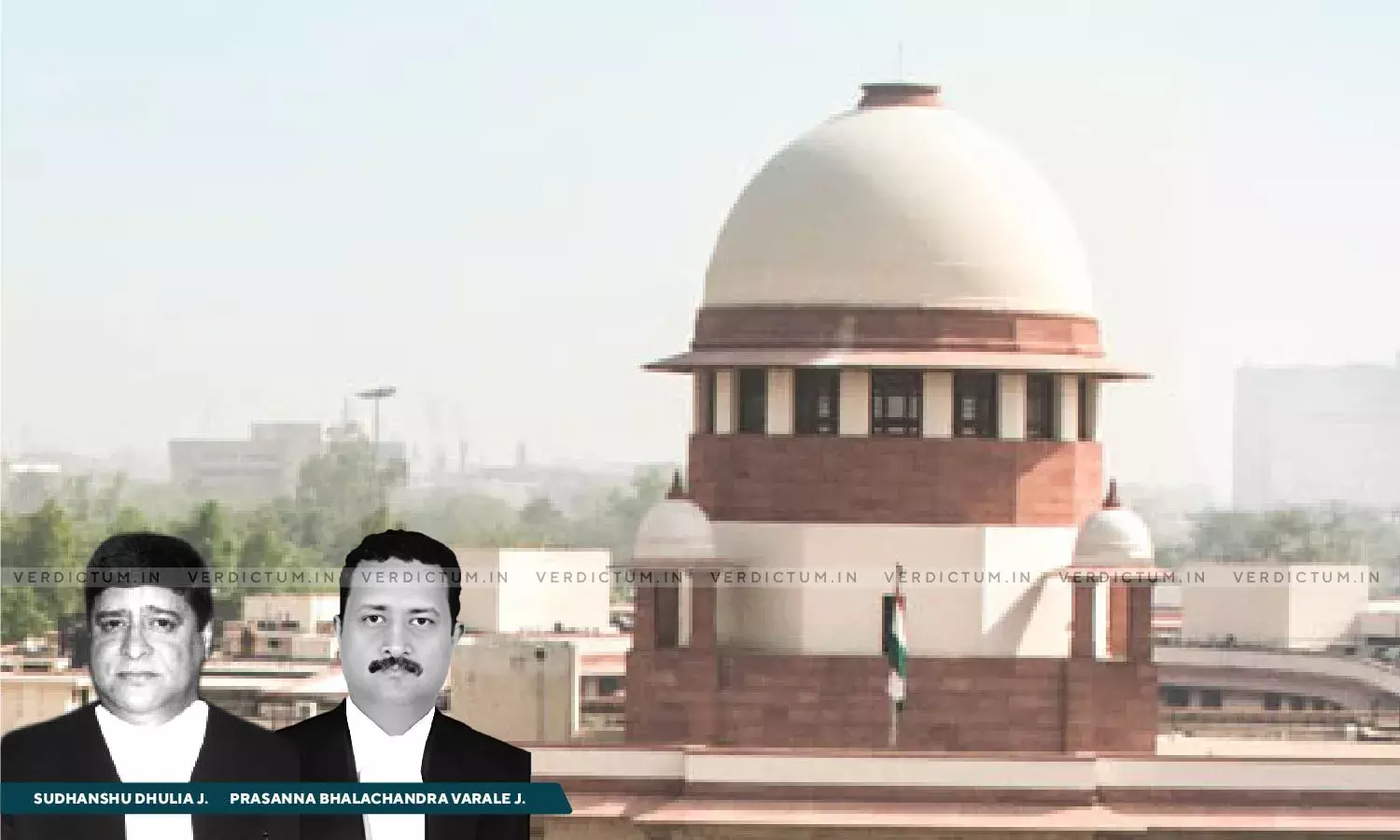Armed Accused Led A Brutal Attack On Unarmed Victim: SC Upholds Murder Conviction; Rejects 'Right To Private Defence' Plea

The Supreme Court upheld a murder conviction, observing that the inflicted injuries were intentional rather than accidental.
One of the prosecution’s witnesses had deposed that the accused, who was armed with a chopper at the time of the incident, had threatened the victim by uttering the words “I shall finish you” before assaulting the victim. Thus, the Court stated that the evidence of eyewitnesses clearly showed that the intention of the accused was to “do away” with the victim.
The Court clarified that upon application of the principle of the right of private defence to the facts, it became evident that the victim was unarmed, rendering the principle inapplicable.
Justice Sudhanshu Dhulia and Justice Prasanna B. Varale observed, “The evidence clearly show that Mahadevappa was alone, he went to the house of appellants to make an inquiry, but he had not entered in his house and on the contrary, accused No.1…thrashed the deceased using stick on the head of Mahadevappa. Accused No. 2…thrashed the head of Mahadevappa using chopper. Using a dangerous weapon like chopper (koita), he assaulted Mahadevappa on his head and forehead. As if this was not sufficient enough, accused No.4…threw a stone on the right knee of Mahadevappa and then picking up another stone hit it on the face of deceased.”
AOR Vipin Gupta represented the appellants, while AOR D. L. Chidananda appeared for the respondent.
The complainant and the victim had an altercation with the accused, following which the victim was grievously injured and later succumbed to his injuries. The Karnataka High Court had confirmed the order of conviction and sentence by the Trial Court under Sections 302, 324 and 326 of the IPC.
The accused argued that the prosecution had not established the element of intention on the part of the accused. Further, they argued that the evidence collected by the prosecution showed that the incident was a reaction to a provocation by the victim and his family members.
Considering the death of the victim was homicidal, the Supreme Court noted that the prosecution mainly drew support from the testimony of the doctor who conducted the post-mortem and reported that the cause of death was shock and haemorrhage to the brain due to injury and multiple fracture injuries.
The Court dismissed the arguments raised by the accused that their act was in the exercise of the right of private defence. “Though it was the submission of the counsel for the appellants that the deceased himself went to the house of the accused and picked up a quarrel with the accused persons upon provocation by the deceased, the appellants exercised their right of private defence, yet on the assessment of the evidence of the prosecution, we were unable to find any such provocation by the deceased,” the Court remarked.
Consequently, the Court recalled the bail granted to the accused and directed them to surrender before the trial court.
Accordingly, the Supreme Court dismissed the appeal.
Cause Title: Subhash @ Subanna & Ors. v. State of Karnataka Ministry of Home Affairs (Neutral Citation: 2024 INSC 294)
Appearance:
Appellants: AOR Vipin Gupta
Respondent: AOR D. L. Chidananda

